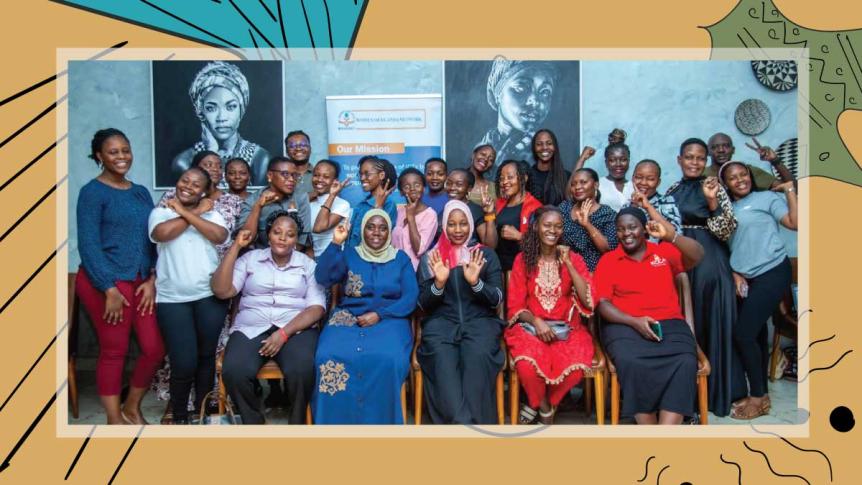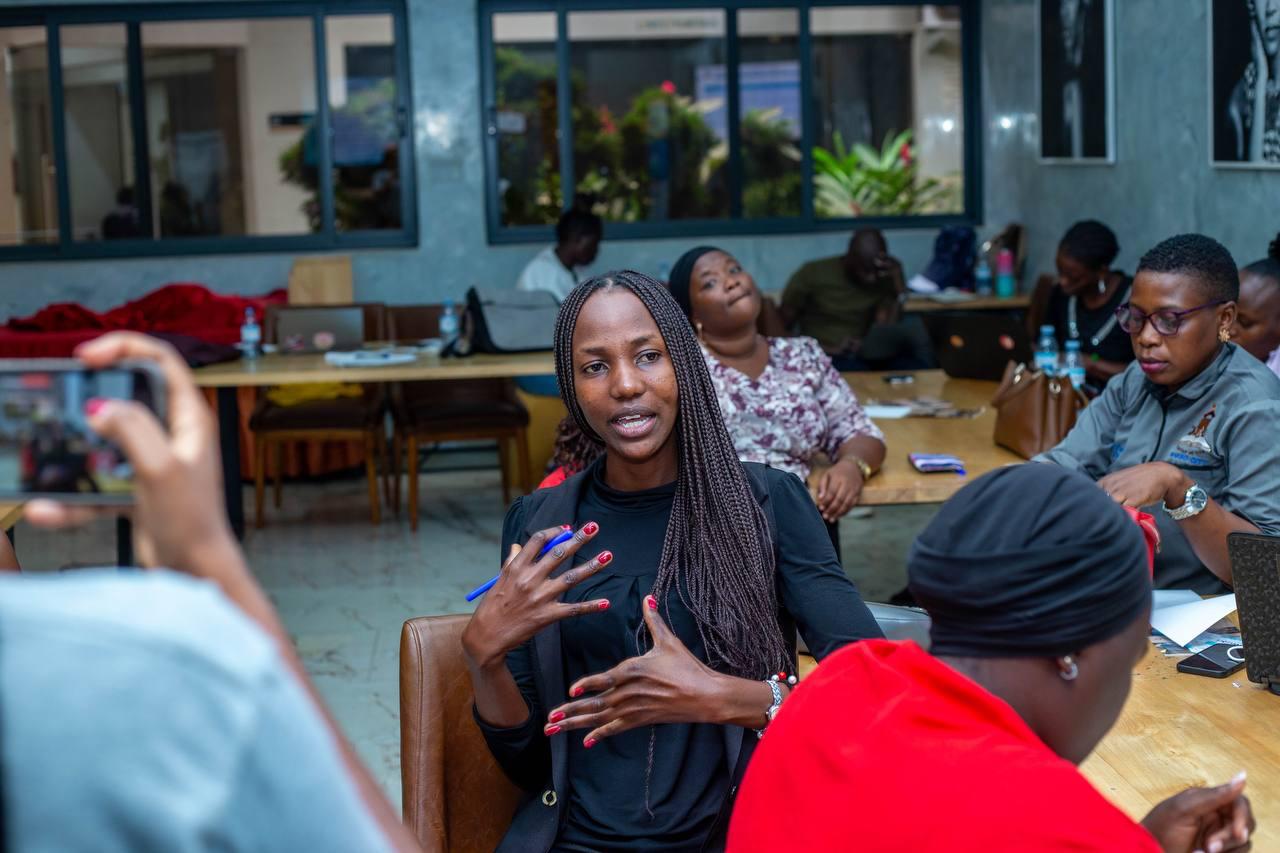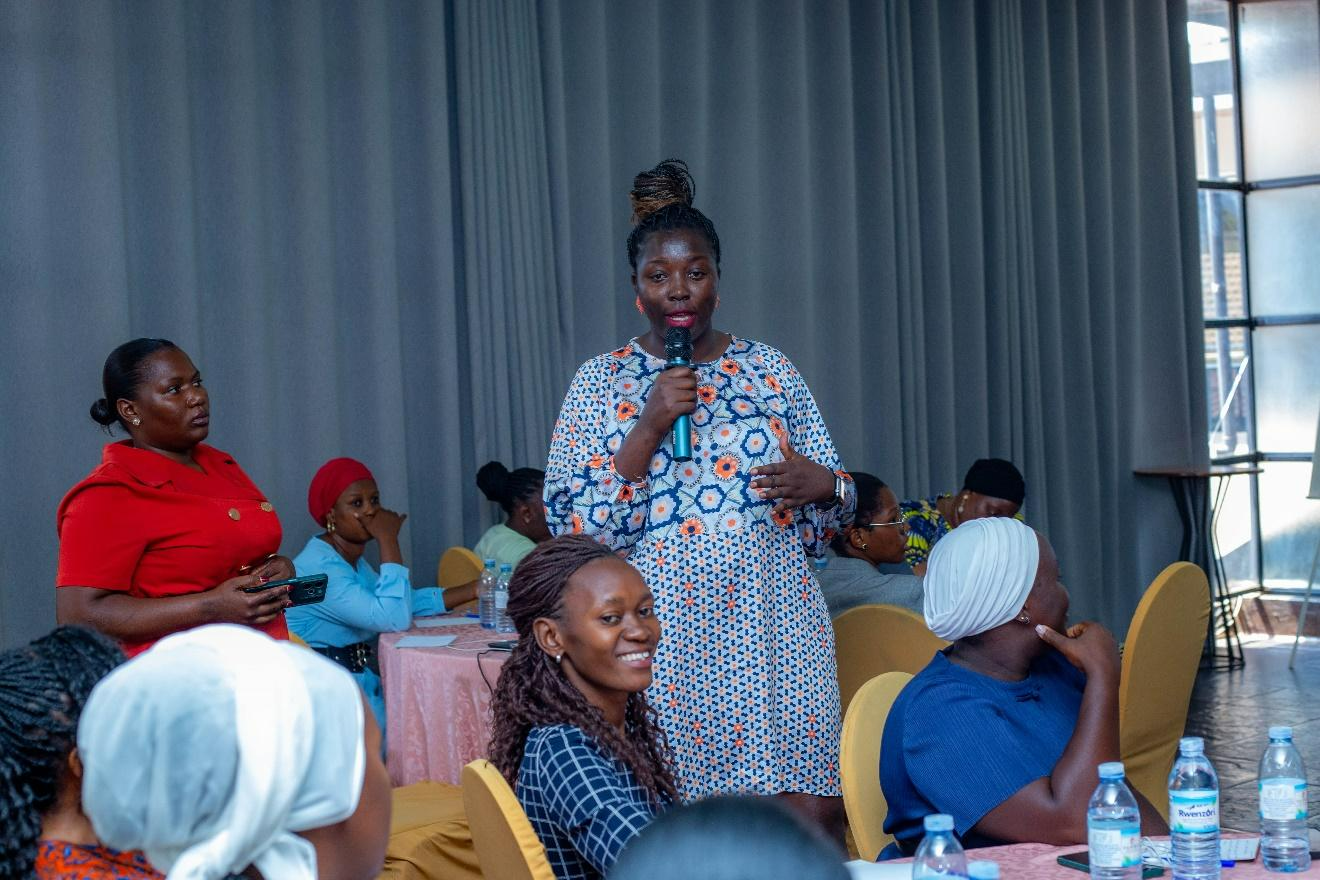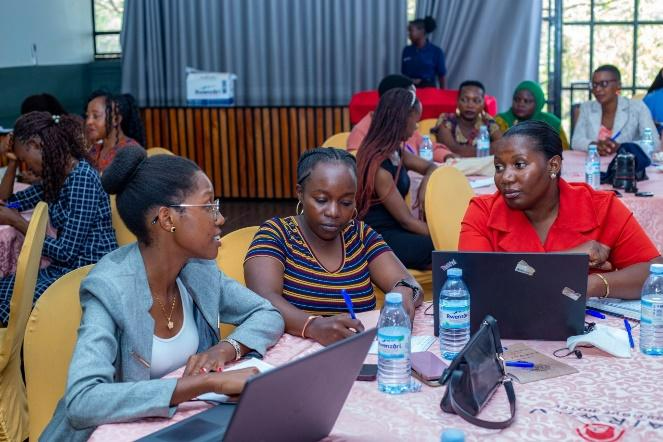
In Uganda, the field of journalism has long been dominated by men, with female voices often marginalised or stereotyped. However, this year, as the world celebrated International Women's Day on 8 March, a significant shift was underway in the local media landscape. The celebration became a decisive moment to spotlight women journalists who are resisting the forces that seek to silence them. The women who once had their stories sidelined were now standing tall, reporting news and reshaping the narrative: a group of female journalists in Uganda shared their experiences of breaking barriers, pushing against stereotypes, and challenging societal expectations, highlighting the significant strides women have made in this challenging profession.
These journalists were central to a Women of Uganda Network (WOUGNET)-led initiative that countered the growing problem of gendered disinformation in Uganda, with a focus on women in politics and journalism. Gendered disinformation, often characterised by false narratives, stereotypes and targeted harassment, undermines women’s credibility and discourages their participation in public life.
Launched in the lead-up to International Women’s Day, WOUGNET’s project brought together women journalists to confront this issue head-on. The journalists were invited to targeted workshops on how to safely navigate online spaces, identify disinformation and misinformation, and counter harmful narratives. However, these women went even further: They also shared their own personal journeys, encouraging other women to pursue a career, and offering mentorship and encouragement to those entering the field.

The timing of the project around International Women’s Day was intentional. It amplified the voices of women who are often sidelined and provided a platform for them to reclaim their space in public discourse. By linking the celebration of women’s achievements with concrete action against gendered disinformation, WOUGNET underscored the importance of both visibility and protection for women in journalism.
Women’s voices are essential
One of the most striking stories shared came from Linda Chibombo, a retired journalist who had spent 24 years in the industry. As a news editor at Sanyu FM, she faced many moments of self-doubt, questioning whether she truly belonged in her leadership position. However, her dedication and perseverance paid off when NTV sought her out for a higher role. Linda’s story embodies the core of what is changing for women in journalism in Uganda: they are no longer confined to the sidelines. Women are in editorial rooms, managing news desks, working as producers, camera operators, and even in leadership roles. Their presence is vital to the industry and the wider society, as they bring new perspectives and a much-needed shift in representation.
The impact on the community has been profound. These women journalists are not just reporting the news but also contributing to broader societal change. By stepping into roles traditionally reserved for men, they challenge outdated gender norms and encourage other women and girls to follow in their footsteps. Hannah Arinite is passionate about inspiring young girls to enter the profession, emphasising the importance of female perspectives in journalism. "We still need many more female perspectives, points of view, and experiences to be put into stories," she says. This shift is crucial for personal empowerment and social progress, as women journalists serve as role models and mentors for the next generation.
The changes are not just personal but ripple outward, affecting the entire community. Female journalists are bringing attention to issues that matter most to women, from gender equality to healthcare and education. As they continue to excel in a male-dominated field, they are also changing the narrative around women in leadership, demonstrating that women can hold powerful and influential positions and drive societal change. This transformation in journalism is a model that can be replicated elsewhere, where other organisations can adapt and foster an environment where women not only survive, but thrive.

This work has made the world better by proving that women’s voices are essential in shaping the stories that define our patriarchal world. It highlights the importance of breaking down barriers, providing equal opportunities, and showing that anyone can rise above stereotypes and contribute to a better, more inclusive society with hard work and determination.
Gendered disinformation
Despite their profound impact, female journalists in Uganda frequently experience coordinated online harassment, mainly when covering sensitive political issues, clearly intended to silence them and undermine their credibility. By stepping into these roles, women are playing a vital role in challenging gendered disinformation. This is particularly critical in Uganda, where the rise of online abuse and disinformation targeting women in leadership positions threatens democratic processes and gender equality as Uganda nears the 2026 general and presidential elections.
It is our shared goal as WOUGNET to protect and empower women in public life from online abuse. This is because online abuse and gendered disinformation are used to silence women journalists and politicians, limiting their professional roles and participation in democratic processes. Women journalists, like politicians, are frequent targets of gendered disinformation, which threatens their safety, freedom of expression, and ability to participate equally in public discourse.
As part of WOUGNET’s project, participants attended a two-day capacity-building workshop on 6 and 7 March 2025, where they learned how to verify information before sharing it, thereby helping to stop the spread of false narratives. The workshop provided a space for participants to engage in roundtable discussions, exploring the distinctions between disinformation and misinformation. It examined how gendered disinformation affects women journalists differently from women politicians, the role of emerging technologies like AI and deepfakes in fostering gendered disinformation, and how such disinformation varies during election and non-election periods. The session also covered effective strategies used in other countries to combat gendered disinformation that could be applicable in Uganda, along with the role traditional media outlets play in addressing this issue.
From the capacity-building workshop, WOUGNET established connections among 25 women leaders, enhancing their collective capacity to collaborate and counter disinformation. Participants also gained valuable skills in digital literacy and online safety, empowering them to navigate the complexities of today’s information landscape. They said they gain new learnings during the workshop, such as how someone can create a fake email address, hack into other people’s accounts, and attempt to phish. A practical guide was also shared, offering strategies on digital safety, legal rights, and how to assess online content critically. Attendees also gained a deeper understanding of gendered disinformation, which fostered advocacy for digital gender equality.

We are incredibly proud of the safe and inclusive environment we created for women to discuss their experiences openly. Many participants appreciated the training and resources, and some have already started applying the skills learned in their work. As a result, more female politicians and journalists are now actively discussing gendered disinformation and taking proactive steps to combat it in their professional and community spaces.
This initiative has already begun to ripple outward. Many participants have started applying the skills learned, and more women are now actively discussing and challenging gendered disinformation in their professional and community spaces. As Uganda approaches its 2026 general elections, the role of women journalists in safeguarding democratic processes and promoting gender equality has never been more critical.
This project has also laid a strong foundation for continued advocacy and intervention against gendered disinformation in Uganda. The insights gained will inform future projects for scale, trainings, research, and policy engagement efforts, ensuring that more women in journalism can navigate the digital space safely and effectively.
Sandra Aceng is the Executive Director at Women of Uganda Network (WOUGNET).